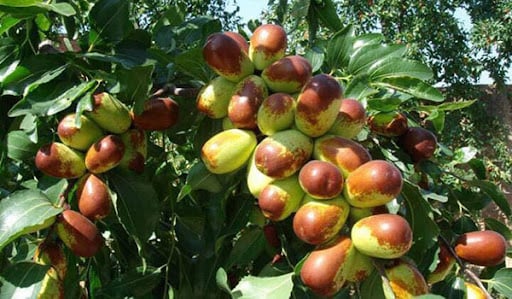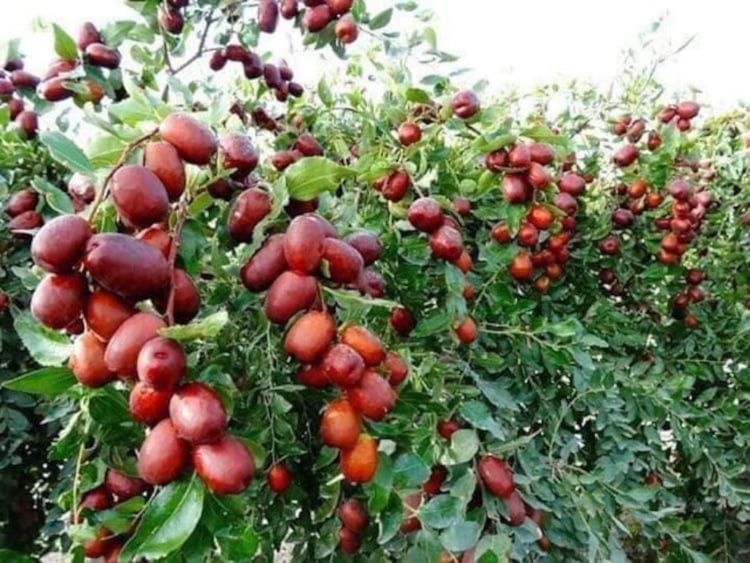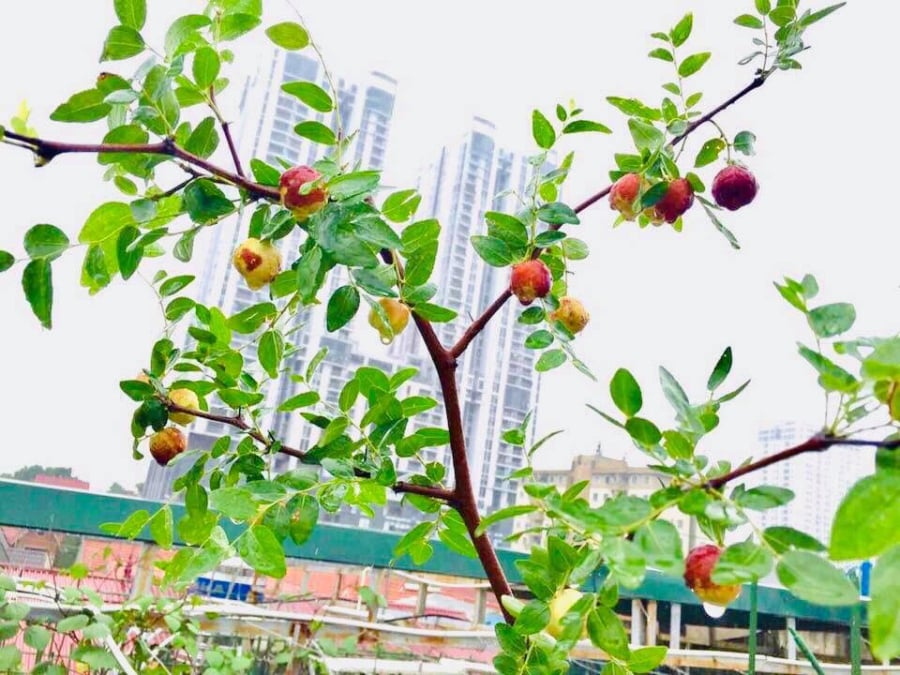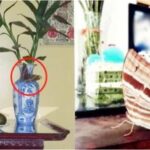The Feng Shui Significance of Chinese Dates
Chinese dates, or jujube, are a popular fruit tree in rural areas. Beyond their edible appeal, the fruits are also used for making herbal tea and porridge, contributing to their cultural significance.

In Feng Shui, the Chinese date tree symbolizes “early birth of a noble child”
The blossoms of the Chinese date tree are a source of nutritious honey, and the tree itself holds positive Feng Shui implications.
In ancient times, families wishing for generational wealth and continuity would plant a Chinese date tree in front of their homes, believing it to bring forth heirs to carry on their legacy.
The tree is also associated with the notion of “early birth of a noble child”, symbolizing prosperity and good fortune in one’s endeavors.

Chinese date trees require ample space due to their large size
Given their affinity for sunlight, these trees thrive in sunny areas. However, due to their substantial size, they are not suitable for small front yards as they can block natural light from entering the house. It is recommended to plant them in backyards or at a distance from the house to avoid shading.
This long-living tree bears fruit annually, making it an indispensable addition to any garden or orchard.
Planting and Caring for a Chinese Date Tree
While Chinese date trees can be planted at any time, early spring is ideal for northern regions, and the onset of the rainy season is preferable for the south to minimize care while maximizing growth.
Seedling Selection: The primary method for propagating Chinese date trees is through seed germination, but they can also be propagated through cutting, grafting, root bud, and stem tip propagation. Seedlings are readily available at most nurseries and should be over 40cm tall, with a healthy, vibrant leaf system, free from pests and diseases.

Chinese Date Tree Seedling
Soil and Planting Density: Opt for nutrient-rich loamy soil with good drainage. Clear the planting area, and create a hole measuring approximately 40x40x40cm. Space the trees 3 meters apart, with 4 meters between rows. For inferior soil, dig an additional 20cm deeper. In low-lying areas, create raised beds and dig trenches around the garden to facilitate water runoff during the rainy season.
Planting and Care Techniques:
Ensure the soil has excellent drainage, and maintain a slightly alkaline or neutral pH level. The fruit’s flavor and color are influenced by the care provided and the soil’s characteristics.
Loosen the soil, and dig a hole the same size as the seedling’s root ball. Gently place the seedling into the hole, removing any plastic wrapping from the root ball. Use your hands to backfill the soil and firmly secure the tree. Stake the tree with a bamboo pole to prevent it from toppling over in strong winds. Water generously to promote root development.
Like all trees, the Chinese date tree thrives with adequate water, especially during its initial establishment phase. Therefore, regular watering is crucial during dry seasons, while efficient drainage is essential during the rainy season.
Fertilizer: Provide regular fertilization for your Chinese date tree, increasing the frequency during flowering and fruiting. Prepare a mixture of soil, compost, rock phosphate, and lime powder, and apply it to the planting hole. Let it cure for about a month to allow the lime to eradicate any pathogens in the soil.
Light: Chinese date trees favor bright, open spaces with ample sunlight.
Temperature: These trees are remarkably resilient, tolerating a wide range of temperatures. However, they perform best when temperatures remain between 15 and 30 degrees Celsius. Lower temperatures will not harm the tree, but they may reduce its vitality and fruit yield.
The Haunting Season: A Pinch of Salt to Ward Off Evil and Misfortune
The seventh lunar month is a time of spiritual significance for the Vietnamese, who believe that offerings of rice and salt must be made to appease the spirits and ward off any disturbances. This tradition is a beautiful reflection of the culture’s deep respect for the supernatural and the importance of maintaining harmony between the living and the dead.
The Power of Three: A Ritual for Prosperity and Abundance
The ancient art of Feng Shui warns against leaving these items on your altar for too long, as they are believed to bring about financial loss and misfortune.





































